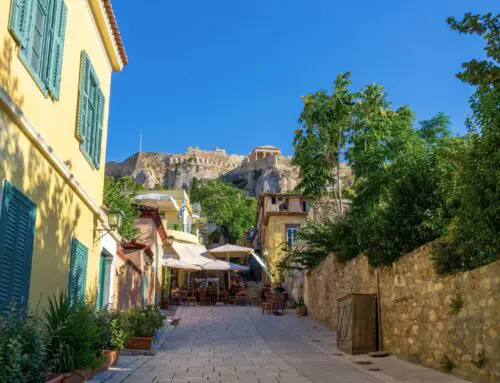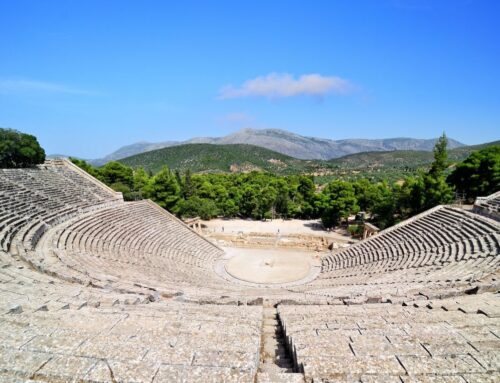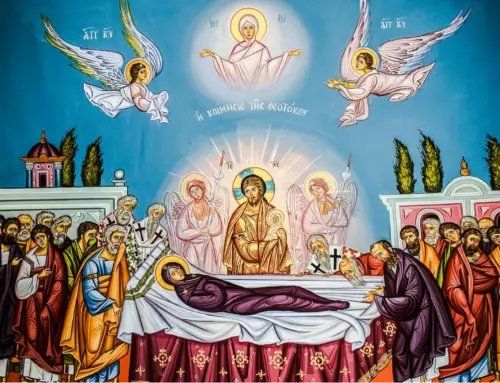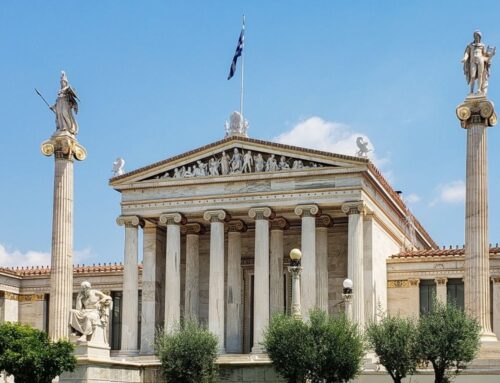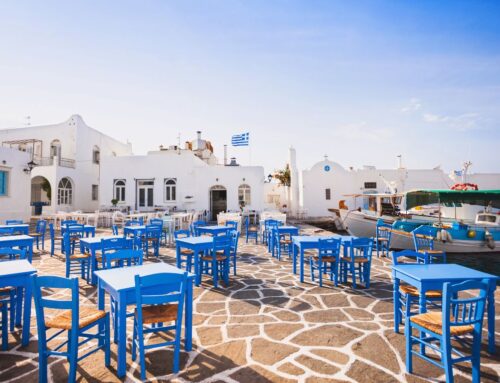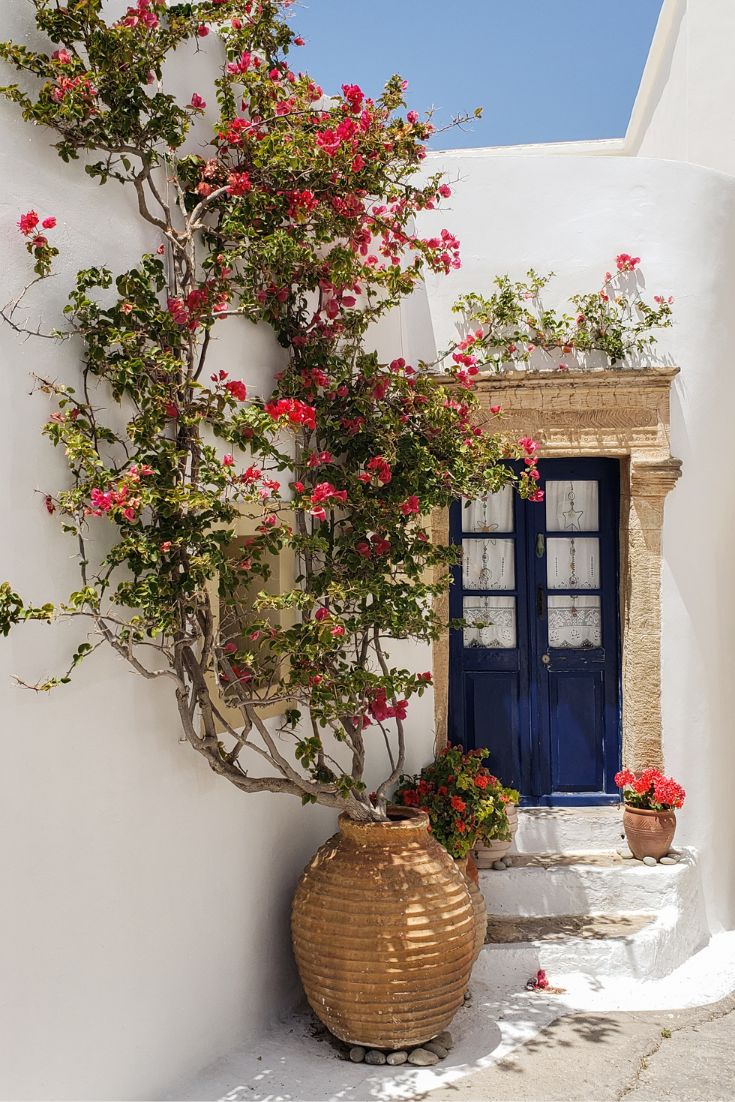Everything You Need To Know About Greek Wedding Traditions
Everything You Need To Know About Greek Wedding Traditions
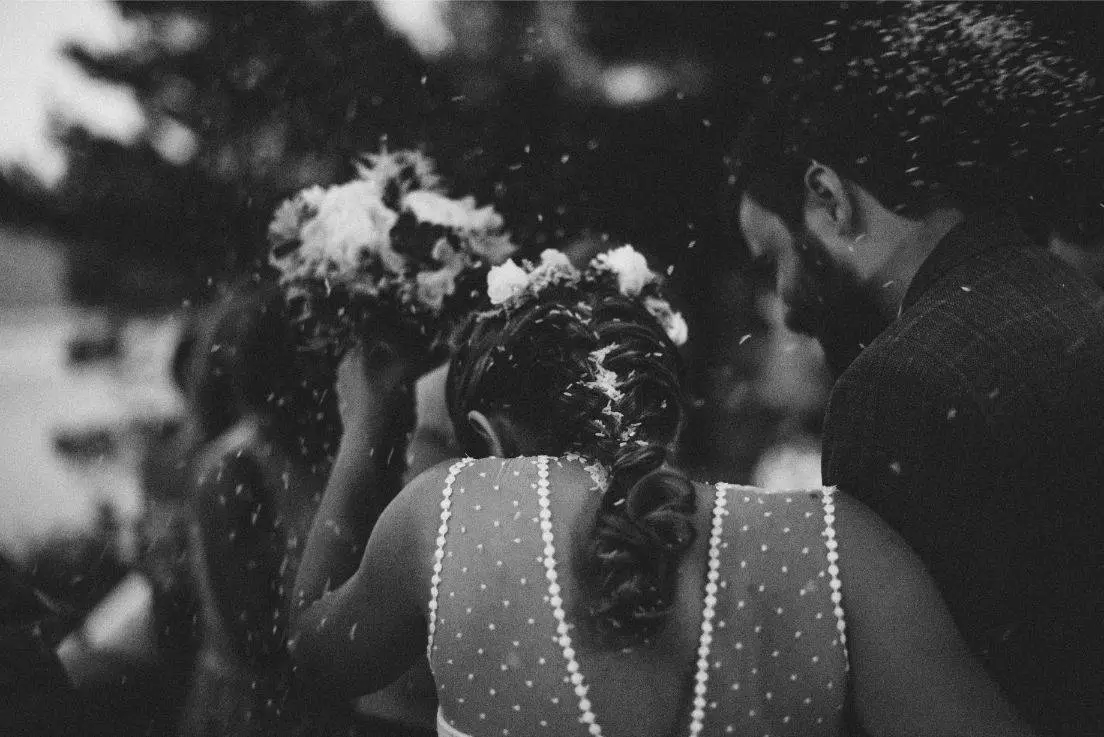
☞ Table of Contents:
Knowing more about the customs and traditions of a country can make your visit more enjoyable! Here are the Greek wedding traditions you should know about.
A wedding, in addition to a happy occasion for two people beginning a new chapter in their lives, is a great example of the cultural identity of society. The wedding traditions in Greece are of great importance to society. If you have seen the movie “My Big Fat Greek Wedding”, you already know what I mean. Most of the traditions derive from Christian Orthodox religion and are probably unknown to most. Keep reading this post and you will be familiar with the most common Greek wedding traditions in no time!
Picking a Best Man or Woman
Probably the most surprising of the Greek wedding traditions is the role of the best man or koubaros. Your best man can also be a woman, in which case the correct name is koubara. Some couples may also choose to pick one “friend” each for this important role, and have a couple as their “koubaroi”. Different to the western role, your koubaroi become part of the family. It is a role that comes with responsbilities and duties, even financial as the koubaroi are usually expected to pay for part of the church decorations. During the ceremony, the koubaros is also responsible for the ring exchange and the wedding crowns, another Greek wedding tradition. Considering that the ceremony sometimes takes an hour this is one role you need to pick carefully for.
- Your best man is also usually expected to baptize your first born, thus becoming their spiritual guardian. In essence, the role brings two families together. A treasured role should you choose to accept an invitation.
Engagement
The concept of “getting engaged” in Greece has some differences in comparison to other western countries. When a happy couple announces their engagment, it is universally accepted that it stands for the promise of a wedding, that is soon to come. In Greece that is done through an engagement ceremony.
When the couple decides that they want to bond their lives together, they organize their engagement, which is traditionally done through gathering both families. The family of the bride invites the family of the groom in their home. During this evening the two families get to know each other, a priest blesses the rings, which the couple will wear in their left hand until the wedding, and the wedding date is set. Also, food, music, and dancing are in order, as all traditional Greek feasts.
Nowadays a more traditional engagement ceremony, is not so popular among young couples. Most of them skip this part and go straight to the wedding. In close societies and rural areas, however, the tradition of engagement still exists.
- Before an official engagment party, the man also had to ask the father of the woman for her hand in marriage. This is also the part where the dowry (or prika) would be arranged, mostly linens and household items made by the woman or her mother in preparation for this day. Since, it was usually the bride that would leave her house to live with her husband and her inlaws, the dowry was very important, however, this tradition has died out in most parts of Greece.
The Week Before The Wedding
After the engagement ceremony, the date is set and it is usually on a Saturday or Sunday. The festivities begin the week before the wedding day. The houses of both the bride and the groom are decorated, so people get to know about the joyful event. During this week, people will often pay the family a visit to congratulate them and offer their well-wishes, and music sounds loud as a sign of the festivities.
The tradition of “krevati” happens on the Thursday. “Krevati” in Greek means bed and this tradition is about making the bed of the soon to be married couple. The friends and family of the bride go to the couple’s place and the ladies make the bed, only with white bedsheets. Besides the bedsheets, they throw rose petals, money and rice as symbols of good luck. They also sometimes throw a little child on the bed that is believed to bring fertility to the new couple.
The night after the wedding, the groom has to strip the bed 3 times for the wishes to come true.
The Day of The Wedding
On the day of the wedding, the friends of the bride gather early in the morning and help the bride get ready for her big day. At some stage, the bride writes the names of her unmarried friends on the sole of her wedding shoes. According to this tradition, the name that will fade out completely, is the next to get married. But she doesn’t wear them yet. She waits for the best man and the friends of the groom to come to her place.
☞ Related: 10 Greek Traditions That Will Make You Feel More Greek
As soon as everyone is gathered and almost ready, the bride tries her shoes on and everyone asks if it fits. The answer is always no! Then the best man, or “koubaros”, a much more intense wedding role than in other countries, has to place money in her shoes until it fits. This tradition takes away some of the anxiety of the bride and makes everyone have a fun moment. It also is a way for the “bestman” to wish the couple good luck, and a life full of prosperity.
In the groom’s place, the situation is quite similar. The friends of the groom help him with the preparations. After he gets dressed, the friends have to shave him. This is the last thing he has to do before saying goodbye to his single life.
As the time of the wedding has come, the groom is waiting for the bride outside the church holding a bouquet. The bride goes to the church escorted by her father or her brother. The traditional way says that the bride walks to the church accompanied by her family. Musicians complete the scene with traditional Greek songs.
If the wedding takes place on an island, the bride arrives at the church by boat. A tradition that emphasizes the special connection people have to the sea. Whether she arrives on foot or by boat, the bride has to tarry and make the groom wait for her.
The Ceremony
The wedding ceremony takes place in an Orthodox church. For the Greeks it is important that their wedding is blessed by God, and that’s why most of them choose a religious wedding ceremony. The priest blesses the couple and their marriage is bound when the best man or/and maid of honor put on the wedding wreaths on the couple’s head and the wedding rings on their fingers. These symbolize the common life that begins for the couple and the rings stand for the endless love that the couple should have.
- During the ceremony, the priest says “And the wife shall revere her husband”. Some brides, pick this moment to step on the foot of the groom, showing him that she is independent. This wedding tradition began back when women had much less or no freedom, and they were subjected to their husbands. Nowadays, this is not taken as seriously, but it is more of a funny moment between the couple.
☞ Related: The Most Amazing Churches In Thessaloniki
- Afterwards, the priest passes a glass of wine to the couple from which they both need to drink. Whatever is left is drunk by the best man and/or the maid of honor. This represents the beginning of a common life and the endless sharing between them. This also shows how important the role of the “koubaroi” is to the union of a couple.
End of Ceremony
At the end of the ceremony, the guests leave the church and wait for the newlyweds outside. As soon as they do, all the guests throw handfuls of rice, as a symbol of the beginning of a long and happy life. Sometimes the best friends of the couple can go a bit overboard and throw bags and bags of rice. A funny moment that signals the end of the serious part and the beginning of the celebrations.
This is also the part, where “wedding favours” are handed out. Traditionally Greek wedding favours are Jordan almonds or dragees called “koufeta”. The sugared almonds used to be plain vanilla but nowadays couple have countless options, like chocolate, cookies or strawberry. An old superstition, states that the number of the almonds cannot be even, so the guests usually receive 5 or 7 almonds. The reason for this odd Greek wedding tradition is to avoid the almonds being able to be split between two people. A symbol of the common life the couple has chosen to now lead as one. The wedding reception follows. During this, the friends and family celebrate the newly married couple with plenty of delicious Greek food and traditional Greek music.
- In the old times: At the end of the reception, the couple heads to their new home, where the mother in law of the bride is waiting. She feeds her new daughter honey and walnuts. This Greek wedding tradition is a way of wishing a “sweet” life and fertility to the couple.
Wedding Traditions in Crete
There are some regions in Greece that have their own special wedding traditions, according to local folkways. The island of Crete is one of them. Here are a few examples of them:
Cretans mark important occasions with a gun salute. In Greek it is called “Mpalothies”. This is an old tradition that dates back to war days. Even though less common nowadays, Cretan men may fire their shotguns in the air after the end of the ceremony.
The groom, besides his tuxedo, wears a white “sariki”. The “sariki” is a traditional knitted kerchief, which the Cretans have been wearing since the 15th century. The white color is for happy occasions and the black one for the unpleasant events. At a wedding, the groom wears the white “sariki” whether in his head or around his neck, as a symbol of bravery and happiness.
When it comes to food, in Crete they have special courses for the wedding day. One of them is gamopilafo, which is made of rice and lamb. It is served during the wedding reception. Because it is so popular, you can find it all year round in the traditional restaurants. Another famous wedding food is gamokoulouro, which is bread with raisins, berries and pine nuts. It is prepared especially for the wedding and usually given to the maid of honor as a gift.
☞ Related: Crete Cooking Lessons – Vamos Fabrica Farm
Another Greek wedding tradition worth mentioning is the number of guests the ceremony has. Cretans, are famous for their hospitality and kindness, so when they organize a wedding, they invite the whole village. Even if you are not invited and happen to just pass by, they will be more than happy to let you join their feast. Attending a Cretan wedding that you were not officially invited in, is a unique and incredibly fun experience you should feel lucky to become a part of.
The wedding as an occasion is important for all societies, as it shows the customs and the traditions of the area. Especially in Greece, due to the strong relations that we have with our families and religion, wedding traditions are even more important and we tend to preserve them. On your next trip to Greece, try to attend a Greek wedding and see for yourself, be part of the big party, and let us know which one of them is your favorite!
- Do any of these Greek wedding traditions remind you of your local customs? Share with us in the comments below!
*Disclaimer: This page includes affiliate links. If you decide to book something through one of them, I might get a little bonus, but it won't cost you anything extra.*





